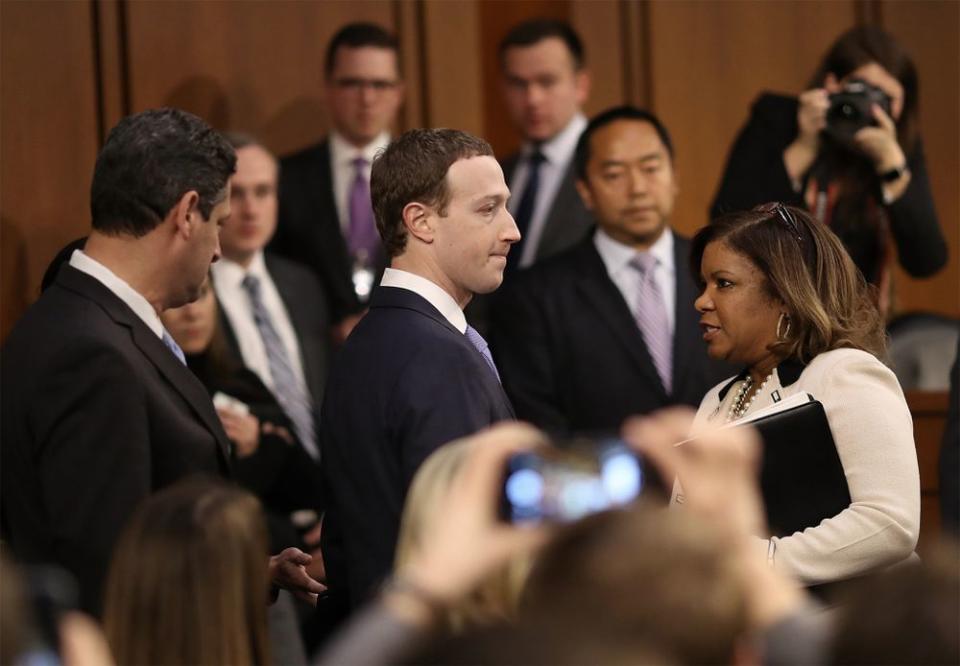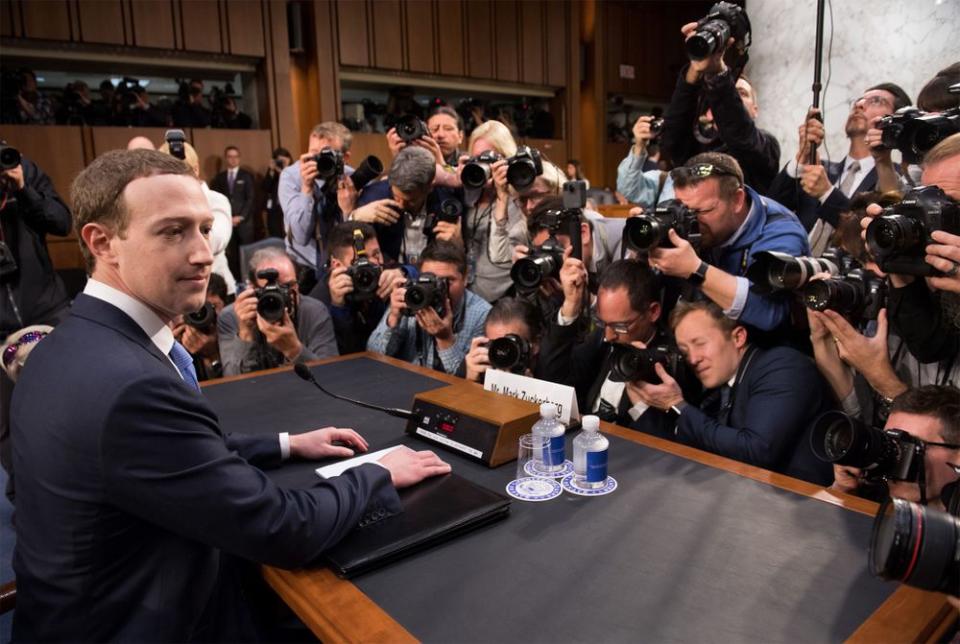Mark Zuckerberg Apologizes for Facebook Data Misuse, Russian Interference During Senate Testimony: ‘We Didn’t Do Enough’
Mark Zuckerberg testified before Congress on Tuesday, appearing in Washington, D.C., to answer questions from members of the Senate Judiciary and Commerce committees over Facebook’s reported misuse of user information.
The 33-year-old co-founder of the social media networking site apologized for Facebook reportedly sharing the information of 87 million users with the political research group Cambridge Analytica, a revelation first reported by The Observer and The New York Times. Cambridge Analytica worked for Donald Trump’s 2016 presidential campaign.
The Judiciary Committee Chairman, Sen. Chuck Grassley, discussed how Facebook makes money by selling personalized advertisements using the data they collect from users. In his opening statement, Grassley noted that many users may not fully understand this or appreciate how their data is used, or, in the case of Cambridge Analytica, how it was misused. Grassley said that as users allow social media companies to collect more data to use their services, the potential for abuse becomes more significant.

In his testimony, Zuckerberg outlined plans for Facebook moving forward, specifying how the platform will combat misuse, as well as strengthen user security.
“Across the board, we have a responsibility to not just build tools,” Zuckerberg explained, “but to make sure those tools are used for good.”
Continued the father of two, “We didn’t take a broad enough view of our responsibility, and that was a big mistake. It was my mistake, and I’m sorry. I started Facebook, I run it, and I’m responsible for what happens here.”

Zuckerberg addressed the use of Facebook by Russian agents to spread disinformation leading up the election while answering questions from 44 senators who were each allotted five minutes to prod the Facebook CEO.
“It is clear now that we didn’t do enough to prevent these tools from being used for harm as well,” Zuckerberg told the committee. “That goes for fake news, for foreign interference and hate speech.”
During his questioning with Sen. Dianne Feinstein of California, Zuckerberg said Facebook has made progress since the 2016 presidential election when it comes to combating fake user accounts, pointing to the use of artificial intelligence to remove pages during elections in Alabama, France and Germany. But he alluded to the difficulties of staying ahead of entities that aim to manipulate users on the social network, calling it “an arms race.”

Yet, Sen. Maria Cantwell of Washington continued to press Zuckerberg on the problem of election influence.
“I believe you have all the talent,” Cantwell said. “My question is whether you have all the will to solve this problem.”
In a humourous—but nonetheless, serious—exchange, Sen. Richard Durbin of Illinois asked Zuckerberg whether he would willingly name the hotel he stayed in the night before, or the report the names of the people he recently messaged.
“No,” Zuckerberg said, as those in attendance laughed. “I would not choose to do that publicly here.”
Durbin’s questions were meant to shine a light on the personal data that Facebook collects from millions of users every day.
Sen. Chris Coons of Delaware, a member of the Judiciary Committee questioning Zuckerberg, tweeted ahead of the hearing on Tuesday after discovering suspiciously Russia-tainted fake accounts in his own name.
On today of all days, I just found out that there are two fake Facebook accounts impersonating me, and guess what? Many of the ‘friends’ appear to be Russian accounts. @facebook and Mr. Zuckerberg-this is unacceptable pic.twitter.com/woMMdeEGv4
— Senator Chris Coons (@ChrisCoons) April 10, 2018
RELATED: Facebook’s Mark Zuckerberg Admits Failure to Protect Users’ Data or Stop Russians, Fake News
As little as 24 hours before the billionaire’s testimony, activist investor group Open MIC called for Zuckerberg’s resignation as CEO from the social networking giant. This is one of many recent calls for Zuckerberg’s resignation, including an editorial that appeared in The San Francisco Chronicle. But the Facebook founder has some 60 percent of the voting rights within his company, which would make it difficult for investors to remove him—unless he chooses to step down.
The tech mogul will also attend a hearing before members of the House Energy and Commerce Committee on Wednesday.

